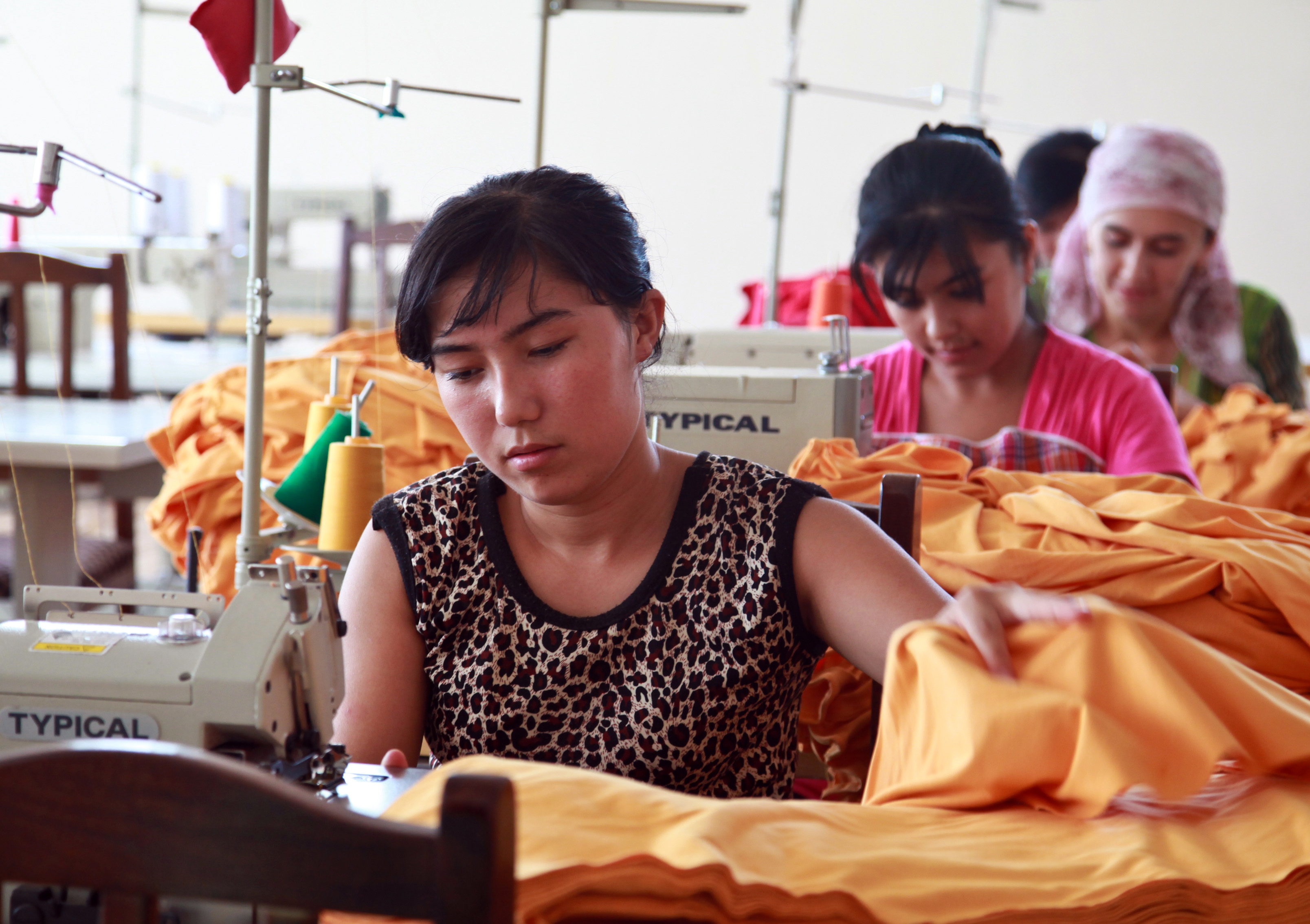Core area “Sustainable economic development, training and employment” Reforming vocational training, creating jobs
Textile workshop in Uzbekistan
The reforms aimed at liberalising the Uzbek economy are having some first effects. But right now, not all regions and economic sectors are benefiting equally. Unemployment and underemployment remain a big challenge in rural areas in particular.
Through its development cooperation, Germany is contributing to creating long-term jobs and better income opportunities. At the German-Uzbek government negotiations in October 2024, projects concerned with vocational education, private sector development, economic policy advice and reforming national quality infrastructure were prolonged.
Germany is supporting the development of rural regions through its Technical Cooperation: the population is benefiting from the development of cooperatives and from increased value creation in agriculture, tourism and trade. Development planning in this context is systematically aligned with respective needs and with local potential.
Making sure that education is better aligned with the needs of the labour market
Youth unemployment is high in Uzbekistan, although there is also a large unmet demand for specialised skilled workers. Training is not yet sufficiently aligned with the needs of businesses. The German Development Ministry (BMZ) is supporting the efforts of the Uzbek government to make vocational training more practice-oriented, along the lines of the dual training system in Germany.
Working closely with the private sector, modern vocational training programmes are being developed and strategies are being drawn up that will create financial incentives for companies that offer places for trainees. Careers advice is available to assist youth and young adults in choosing a field of work and planning a career.
Supporting a “green” economy
Another challenge is that the processing sector in Uzbekistan is not able to compete on international markets – it is too energy intensive and creates too little added value. In order to show where future potential can be explored, GIZ is advising the private sector on using green technologies so as to conserve resources and reduce climate-damaging emissions of carbon dioxide. As an outcome of the government negotiations in 2024 a new project for “greening” the economy in rural areas was launched.
Under the framework of Financial Cooperation, KfW Development Bank is facilitating better access to medium- and long-term loans for micro, small and medium-sized enterprises. This enables them to make investments and create jobs.
As at: 16/06/2025
